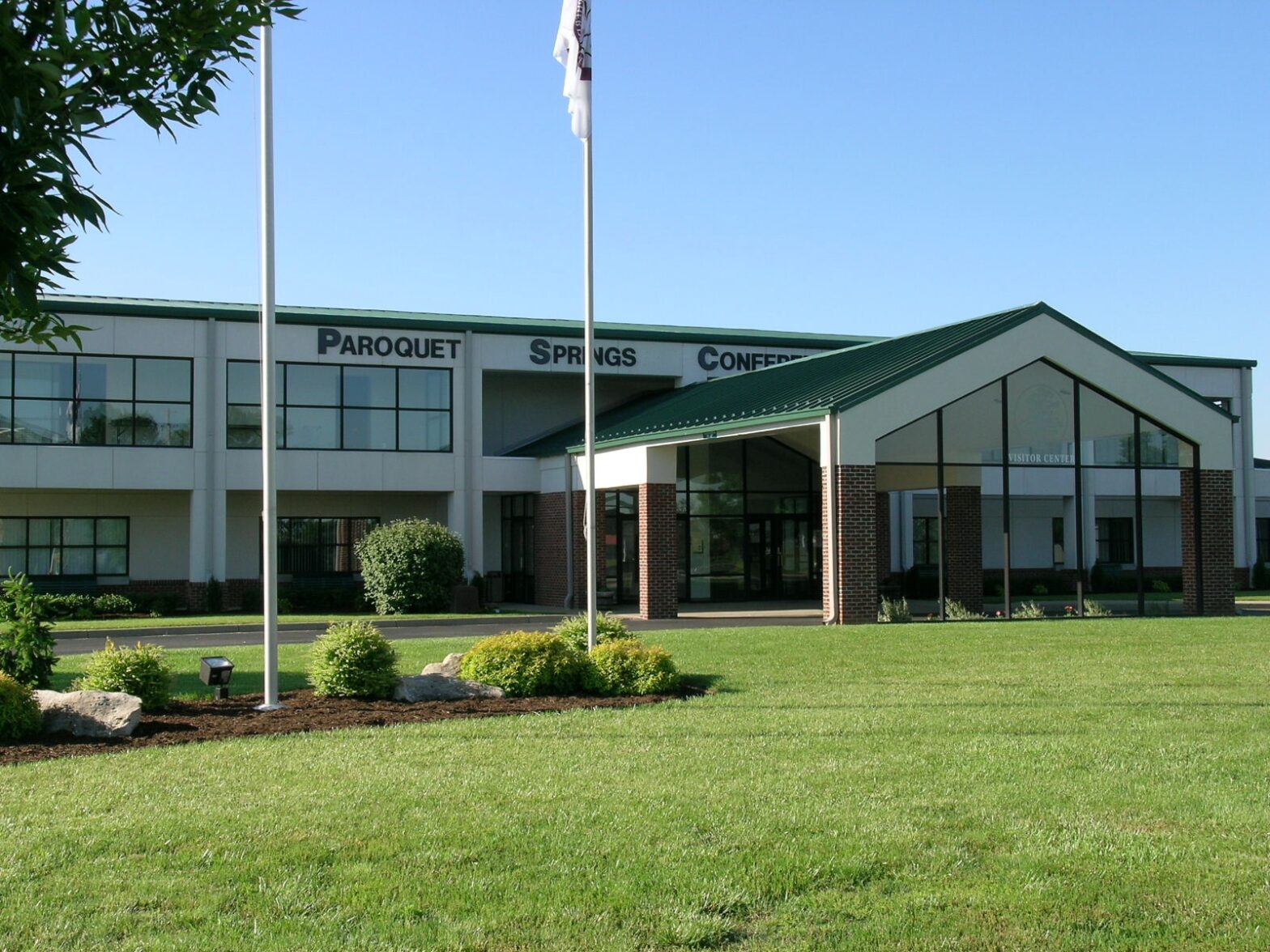
Hobbies are booming. The pandemic lockdown led many to take up new hobby sports and activities—or re-engage with old interests. Now that people are gathering again, enthusiasts are coming together to pursue their passions. These growing gatherings offer an opportunity for planners not only to design such events but also to add hobby-based outings to meeting agendas so like-minded attendees can connect and focus on their
fancies. After all, hobbyists take their leisure pursuits seriously, from fish to fillies and hounds to homebrew.
Brewing up a storm
The popularity of homebrewing is bubbling over. There are more than 2,100 homebrew clubs registered with the American Homebrewers Association (AHA). The organization hosts the annual Homebrew
Con, as well as the National Homebrew Competition, the world’s largest recognition of excellence in homemade beer, mead, and cider. The 2023 competition received 4,335 entries from 1,708 homebrewers across 50 states, Washington, D.C., and 13 countries.
Drew Kostic is part of the craze he affectionately refers to as “this kooky little club of people who love making their beer.” Kostic is head brewer and general manager at New Realm Brewing Company in the Tony & Libba Rane Culinary Science Center at Auburn University (AU) in Alabama. “Nobody should ever be afraid of showing up at a homebrewing meeting and saying, ‘I just want to learn,’” Kostic says. “Everybody welcomes it, in my experience.”

Homebrew clubs host competitions and offer amateur brewers the opportunity to learn about the craft of brewing, swap recipes and tips, and raise a few glasses.
“Members are sharing beers and giving each other analysis on what they are perceiving from each other’s beers,” says AHA executive director Julia Herz. “They’re their own test markets.”
At AU’s Horst Schulze School of Hospitality Management, students can get a graduate certificate or master’s degree in brewing science and operations (Kostic is an alumnus). The New Realm taproom at the school is a teaching brewery, and guests at the school’s teaching hotel, The Laurel Hotel & Spa, can visit the tasting room (as can the public).
Studying the science of brewing provides a stout knowledge of history, geography, and beer styles worldwide. And part of the attraction is that brewing offers endless possibilities. “The beer is the result of infinite variables,” Kostic says. “Slight changes will completely change the final product. Everything can be different each time, and there’s always more to learn.” His advice: “Keep the good beer flowing and don’t get distraught over a bad batch.”
Many competitions and festivals take place throughout the South, including the Bluegrass Cup Feb. 10 in Lexington, Ky.; Operation Fermentation X March 2 in Houston, Texas; the Coconut Cup March 9 in Hialeah, Fla.; and Bruce Street Brewfest craft beer festival May 4 in Sevierville, Tenn.
“As time has gone on, homebrewing has become much more technical,” says Auburn Brew Club member Doug Bendinger. “It’s almost like a cooking show environment with lots of ingredients you can use.”
Gone fishin’

For many who fish, the activity is more than a hobby—it’s a lifestyle. Fishing in the 21st century can be a hi-tech, expensive, and competitive sport (asking an angler where the fish are biting usually meets with silence). But the simplicity of getting out in nature and casting a line has kept the activity popular for generations, long after it was a necessity for food.
Professional fishing tournaments attract tens of thousands of spectators, as well as fishing industry vendors who exhibit at accompanying trade shows. The Bassmaster Elite Series kicks off this season Feb. 22-25 at Toledo Bend Reservoir in Many, La., and travels to six states, including Florida, South Carolina, and Alabama. Many anglers on this circuit qualify for the annual Bassmaster Classic—considered the Super Bowl of bass fishing—taking place March 22-24 at Grand Lake O’ the Cherokees near Tulsa, Okla.
“It’s certainly entertaining, especially for guys who love bass fishing, to see these techniques in motion and the personalities of the pros that have become fun to watch,” says James Hall, editor-in-chief of Bassmaster, the member magazine of the Bass Anglers Sportsman Society. Better known as B.A.S.S., the organization has 500,000 members, primarily recreational fishermen, Hall says.
“The introduction of technology in our sport has given birth to the ability to entertain the masses,” Hall says. “Nowadays, we have 10 cameras on boats.” Those cameras provide TV and livestream coverage of events like the Bassmaster Classic.
“Bass fishing used to not be a spectator sport. Now, you can watch in real-time,” Hall continues. “TV and livestreams have become so popular because you’re able to see what’s happening right now.” Then, viewers can
try the pros’ techniques the next time they go fishing.
A must-outing for attendees who fish is the Bass Fishing Hall of Fame in the Wonders of Wildlife National Museum & Aquarium at Bass Pro Shops headquarters store in Springfield, Mo. The popular exhibit promotes and preserves the sport of bass fishing and is packed with memorabilia, photos of bass fishing pioneers and icons, and displays celebrating the history of the sport.
People are hooked on saltwater fishing, too. Clubs like the 53-year-old South Florida Sport Fishermen of Dade County promote recreational fishing. Club members take monthly fishing excursions throughout South Florida, including in the Florida Keys and Dry Tortugas.
John Doerschuck, a 34-year member, appreciates the social aspects—weekly dinners and club meetings—and the monthly competitions that encourage members to learn from each other. Yet part of fishing’s enduring appeal is its escapist quality.
“When I get out on the boat for a day of fishing, after I get out there, I forget completely about all the daily things that cause stress,” Doerschuck says. “It takes my mind to a completely different world. I’m so relaxed when I get on the boat.”
Hall agrees. “You get out on the water, and typically, you’re surrounded by the beauty of nature,” he says. “More and more, I find that getting out and enjoying silence away from electronics is a great reprieve.”
To the dogs

Dogs are the most popular pets in the United States and are present in more than 65 million households, according to Forbes. For dog fanciers, dog shows combine competition, showmanship, entertainment, and education. The American Kennel Club sanctions more than 22,000 events each year.
Purina Farms in Gray Summit, Mo., is a premier location to hold, participate in, or attend dog shows and canine sporting events. The free attraction is less than an hour west of the Nestlé Purina PetCare headquarters in St Louis, Mo., and is open to the public from mid-April to October. The site also is available for private events, such as parties and group visits. Some of the bigger shows attract 1,500 entries, and Purina Farms has an RV lot where participants can stay.
The location includes six outdoor fields and the Purina Event Center, an 84,000-square-foot state-of-the-art indoor facility. Attractions can include dog shows, agility trials, obedience and rally events, herding trials, bird dog competitions, and the Purina Incredible Dog Challenge. Among the fastest-growing events is Fast CAT (coursing ability test), a timed 100-yard dog dash measuring speed and agility, says John Costello, Purina Farms’ senior manager of events and promotions.
In April, Purina Farms will host two major dog shows: the American Shetland Sheepdog Association National Specialty April 13-20 and The Poodle Club of America National April 22-26.
“We have definitely seen growth in the dog show world,” says Hannah Conforti, Purina Farms’ manager of events and promotions. “Watching a dog show is very fulfilling in that you see the passion in people’s faces and in the dogs, as well—especially when dogs are doing what they were bred to do.”
Horse play

Wild horses couldn’t drag equine enthusiasts from their hobby. Horse fanciers will saddle up for meetings in Florida’s Marion County and Kentucky’s famous horse cities of Louisville and Lexington. Groups can visit working horse farms and training centers, meet retired champion horses, and watch shows at event centers, many of which offer venue rentals.
Marion County and its county seat of Ocala are home to more than 35,000 Thoroughbreds, according to the Ocala/Marion County VCB. The area has produced dozens of national champions and hosts prestigious horse shows (many of which are free to attend) throughout the year, including HITS (horse shows in the sun) Ocala hunter/jumper shows December through March, AdventHealth Grandview Invitational draft horse show Feb. 1-3, and Live Oak International combined driving and show jumping competition March 14-17. Florida Agriculture Center and Horse Park, HITS Post Time Farm, and World Equestrian Center (WEC) are among the area’s premier spots for equine events, including hunter/jumper, dressage, polo, and breed shows. The 378-acre WEC includes the 248-room EquestrianHotel and expects to open the new four-story, 400-room Riding Academy Hotel this spring; both hotels have meeting and event space.
Kentucky Horse Park in Lexington is an equine theme park offering the Parade of Breeds, equine meet and greets and stall-side chats, the International Museum of the Horse, and Hall of Champions. The complex has numerous facilities available for rent, including Alltech Arena, Rolex Stadium, an exhibit hall, and multiple outdoor areas. A private after-hours program is available and can be tailored to the specific needs of each group.
Louisville hosts the World’s Championship Horse Show each summer to crown champion Saddlebreds, Hackney ponies, and road horses.
And, of course, the oldest continuously held major sporting event in the United States takes place on the first Saturday in May at Churchill Downs in Louisville. The famed Kentucky Derby is celebrated with a week of events leading up to the “Greatest Two Minutes in Sports.” This year, events begin on April 27 and continue through the 150th Run for the Roses on May 4.
The horse community is a tight-knit and supportive group. The United States Pony Clubs, Inc. (USPC) is a prime example. The Lexington-based nonprofit association holds meetings and conventions throughout the country, and its membership is growing.
“People are flocking to it,” says USPC board member Becky Logsdon. “Members are in it for first-rate knowledge. They’re there to learn.”
Logsdon is a longtime volunteer for the USPC Festival. The weeklong festival, scheduled for July 15-22 at Kentucky Horse Park, draws more than 3,000 club members, volunteers, and families and is open to the public. The event features the National Championships, clinics and workshops, a trade fair, and a mock fox hunt.
“I know horses from all over the country,” Logsdon says. “I think it’s just bonding over an animal.”






